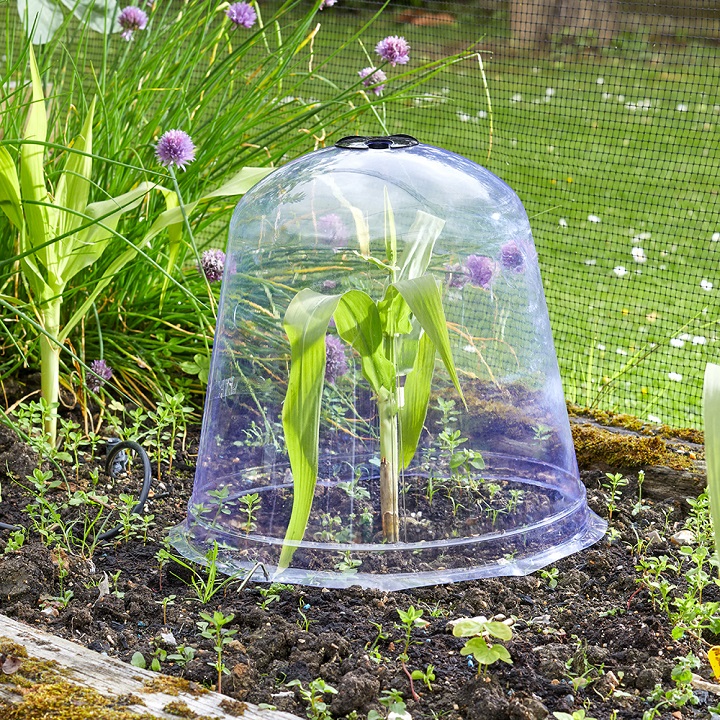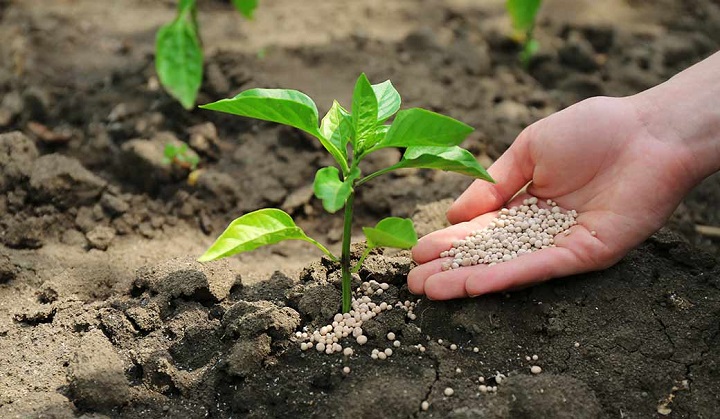Find Your Green Thumb: Essential Gardening Steps to Keep Your Plants Thriving
To plant a garden is to believe in tomorrow – this famous quote by Audrey Hepburn, a British actress and a gardening enthusiast herself, serves as the perfect metaphor for life itself. Just like in a garden, to see the fruits of our dreams and aspirations flourish, we need to invest time, energy and effort to design our lives with purpose.
However, to only have passion for something isn’t enough. When it comes to gardening, you need to extend your knowledge and learn about the many aspects of this particular discipline. To find your green thumb you need to become a dedicated learner about diverse plants, learn how to protect them to thrive in diverse climates, ensure proper nutrition and establish a regular watering routine. By immersing yourself in each of these aspects you will be rewarded with a sense of accomplishment that comes when seeing the results of your work flourish.
Protect Your Plants by Using Garden Cloches

Diverse plants require various weather conditions to thrive. Therefore, when some plants are adapted to specific climates they can’t develop their unique potential and grow without the proper protection. For example, many tropical plants are especially susceptible to strong winds and frost, therefore to thrive they may require warmer climates and constant protection from environmental factors.
Similarly, specific garden plants can’t thrive in environments with too much sunlight or heavy rains. Therefore many gardeners, are opting for convenient and multi-functional garden cloches, which are specifically designed protective covers that are used to shield the plants from various weather conditions, such as pests, frost and harsh winds. They act like miniature greenhouses that help plants such as vegetables, create a microclimate to promote healthy growth.
You can use them to protect a row of growing plants or cover individual plants. It’s essential to choose the right design for the type of plants you plan to protect and set up the cloche at least a week before planning to plant the seed of a particular plant species. Garden cloches come in a wide array of shapes and designs, suitable for various kinds of plants.
Bell-shaped cloches are usually made of glass or clear plastic offering a clear view of the growing plant. They are often utilised to cover individual plants and protect them against frost, heavy rains, and pests. These covers have adjustable features such as air vents that allow gardeners to adapt the cloche to the changing weather and create a warmer climate.
Compared to them, the tunnel cloches as their name suggests are tunnel-shaped structures designed to cover entire rows of plants. They can be made from materials such as high-quality UV fabrics to shield diverse plants from various weather factors. They can be especially beneficial when growing leafy crops such as cabbage, lettuce or spinach to promote softer growth or in summer to give plants adequate shading from strong sunlight and insects.
Understand Your Climate
While giving your plants proper protection from the elements matters, understanding your local weather climate before you decide to cultivate certain plants is equally important. Therefore before embarking on your gardening adventure, you should research diverse plant species and choose varieties that are well suited for the climate you live in.
This could save you time and effort, and prevent your plants from exposure to excessive humidity or cold that can hinder their growth. For instance, citrus trees such as oranges, lemons and limes are known to thrive in warmer climates with plenty of sunlight. Compared to them, broccoli, cauliflower and other cruciferous vegetables can thrive better in cool to moderate climates as most of them can tolerate exposure to colder weather. Cooler temperatures can even help these types of plants develop better flavour and texture allowing them to reach their full potential.
Give Your Plants All the Necessary Nutrients

In addition to selecting the right type of plants for your garden, you should provide them with all the nutrients essential for their growth. This involves selecting the right type of fertilizer and providing the ideal soil that anchors the roots and supplies your plants with adequate sources of food and energy.
When looking for fertilizer, consider your plant’s specific requirements or test your soil to gain an insight into the existent nutrients in your garden. If you are growing veggies you should opt for a fertilizer that features high levels of nitrogen, phosphorus, and potassium. In addition to being essential for the healthy growth of your plants, such as the development of healthy roots and stems, these nutrients offer your plants adequate protection against various diseases.
Set a Regular Watering Routine
When it comes to cultivating a thriving garden, regular watering plays a crucial role in growing healthy plants. While not all plants are the same they all require some level of moisture to thrive and develop properly. Therefore you need to establish a regular watering routine depending on your plants’ specific requirements. For instance, vegetables such as cucumber and tomatoes, require frequent watering to establish strong roots and thrive.
Unlike them, some types of succulents and cacti can go about weeks without watering as they can thrive in dry conditions. Similarly, various types of herbs such as lavender and oregano can also prosper without the need of frequent watering. Therefore knowing your plants’s specific features and considering the climate you live in, can help you determine how much watering it needs depending on the growing stage.
For instance, if you live in a warmer or tropical climate you may consider watering your plants frequently, however, this doesn’t apply to all types of tropical plants. If you are unsure about your plant’s specific water requirement it’s best to consult experienced gardeners or plant biologists who may give you insight into the unique needs essential for it to thrive.





